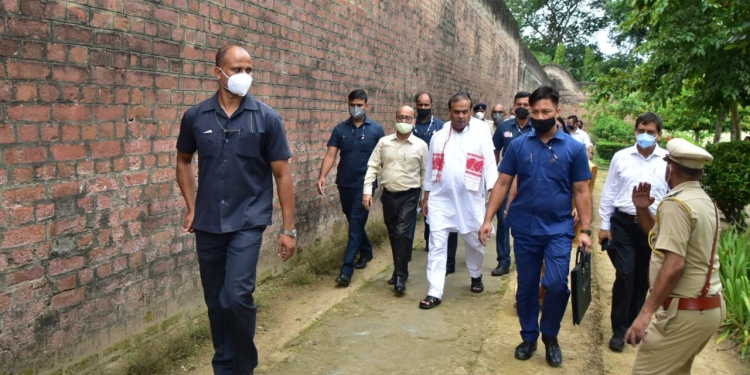Assam Chief Minister Dr. Himanta Biswa Sarma has announced the construction of a Freedom Movement Park on the historic Jorhat Central Jail campus, representing a significant initiative to preserve the state’s freedom struggle heritage while promoting development.
The ambitious project, spanning 66 acres at an estimated cost of Rs 134.9 crore, will serve as a fitting tribute to the Swatantrata Senanis (freedom fighters) who played crucial roles in India’s independence movement. The Chief Minister shared details of the project on social media after conducting a site inspection.
“Taking forward the vision of Vikas Bhi, Virasat Bhi, we’re building a Freedom Movement Park on historic Jorhat Central Jail campus. Coming up in 66 acres of land at a cost of Rs 134.9cr, the park will be a fitting tribute to our Swatantrata Senanis. Inspected the site last night,” Dr. Sarma posted on Twitter.
Taking forward the vision of Vikas Bhi, Virasat Bhi, we’re building a Freedom Movement Park on historic Jorhat Central Jail campus. Coming up in 66 acres of land at a cost of ₹134.9cr, the park will be a fitting tribute to our Swatantrata Senanis.
Inspected the site last night. pic.twitter.com/YNIwgtVeP5
— Himanta Biswa Sarma (@himantabiswa) May 22, 2025
The project embodies the government’s “Vikas Bhi, Virasat Bhi” (Development as well as Heritage) philosophy, which aims to balance modern development with the preservation and celebration of historical and cultural heritage. This approach ensures that progress doesn’t come at the expense of historical memory and cultural identity.
The choice of the Jorhat Central Jail campus as the location holds particular historical significance. Colonial-era jails across India often served as detention centers for freedom fighters who challenged British rule, making these sites important symbols of resistance and sacrifice in the independence movement.
Jorhat, historically known as the cultural capital of Assam, has deep connections to the freedom struggle. The region was home to numerous freedom fighters and witnessed significant resistance activities during the independence movement. The transformation of the old jail campus into a memorial park will create a powerful narrative of transformation from oppression to liberation.
The 66-acre park is expected to feature various elements that commemorate the freedom struggle, potentially including museums, memorial structures, gardens, and educational facilities that will help visitors understand the sacrifices made by independence activists. Such parks typically serve both as tourist attractions and educational centers for future generations.
The substantial investment of Rs 134.9 crore indicates the government’s commitment to creating a world-class facility that will serve as a lasting monument to the freedom fighters. The project is likely to boost tourism in Jorhat while providing educational opportunities for students and researchers interested in the independence movement.





